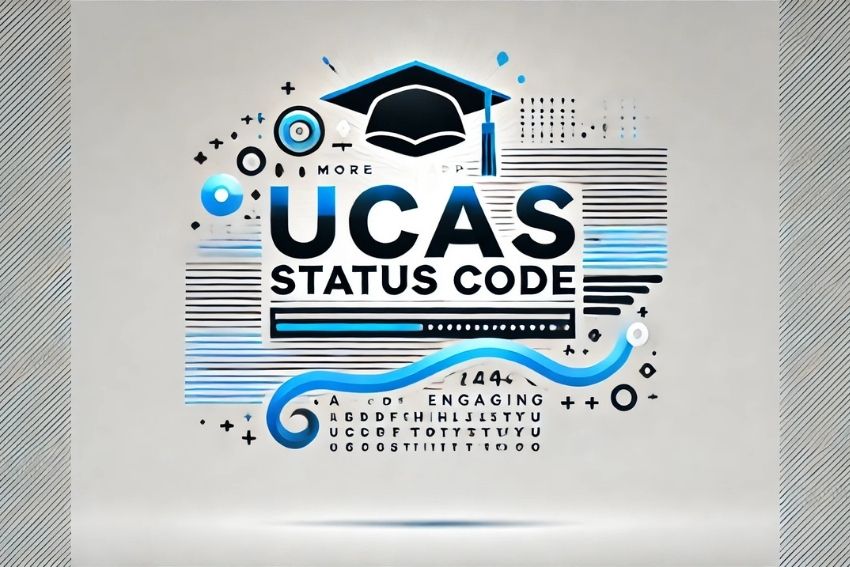GCSE English Language Tips: 10 Proven Techniques
The GCSE English Language is more than just a compulsory subject, it is a vital component of secondary education in the UK. Mastery of English language skills is crucial not only for academic success across various subjects but also for effective communication in daily life and the professional world. This qualification demonstrates a student’s proficiency in understanding and using English, which is essential in almost every career path. As such, performing well in this subject can significantly enhance a student’s opportunities for further education and employment.
Achieving a Grade 7 in GCSE English Language requires a mix of effective exam techniques, clear writing skills, and strong analytical abilities. Here’s a simple step-by-step guide with practical tips to help you reach your goal.
1. Understand the Mark Scheme
- Familiarise Yourself With the Assessment Objectives (AOs)
- AO1 – Identify and interpret information from the text.
- AO2 – Analyse language, structure, and form used by the writer.
- AO3 – Compare ideas and perspectives in different texts.
- AO4 – Evaluate and critically respond to a text.
- AO5/AO6 – Writing quality, including spelling, punctuation, grammar (SPaG), and creativity.
One of the most effective GCSE English Language tips is to know how marks are distributed, as it helps you target your revision.
2. Master Reading Comprehension (Paper 1 & 2)
- Annotate the Text – Underline key words, highlight techniques (like metaphors, alliteration, and imagery) and identify themes.
- Identify Techniques – Look for literary devices such as metaphors, similes, rhetorical questions, and structural features (like shifts in tone).
- Use the PEEL Paragraph Structure – Point, Evidence, Explain, Link.
- Example: “The writer uses personification, as seen in ‘the sun smiled down on them,’ which creates a warm, welcoming tone.”
- Use Subject-Specific Vocabulary – Words like juxtaposition, oxymoron, and tone should be in your analytical responses.
3. Writing Skills (Paper 1 & 2)
- Practice Writing for Different Purposes – Be ready to write letters, speeches, reports, and narrative/descriptive pieces.
- Use a Variety of Techniques – Use language features like similes, metaphors, sensory descriptions, and rhetorical questions.
- Vary Sentence Lengths – Use short, punchy sentences for impact and longer sentences for description.
- Plan Your Writing – Take 5 minutes to plan key points before you start writing.
- Include Ambitious Vocabulary – Use “high-level” vocabulary appropriately but avoid “overwriting” (don’t use complex words if they don’t fit naturally).
- Check SPaG (Spelling, Punctuation, Grammar) – Leave time at the end to proofread for basic errors.
4. Nail Descriptive and Narrative Writing
- Show, Don’t Tell – Instead of saying “She was scared,” describe her physical reaction (e.g., “Her hands trembled as she clutched the cold metal handle.”).
- Start With a Strong Opening – Create an engaging first sentence.
- Use the 5 Senses – Touch, taste, sight, sound, and smell make descriptions vivid.
- Focus on a Moment – Don’t try to cover a full story. Describe one key event with detail.
- Use Metaphors and Similes – But make them unique, not clichés.
5. Plan and Structure Your Answers
- For Reading Questions (Paper 1 & 2):
- Q1 (Simple Info Retrieval) – Write clear, short answers.
- Q2 (Language Analysis) – Use 2-3 techniques and explain the effect of each.
- Q3 (Structure Analysis) – Look at how the text is organised (shifts in focus, tone, or perspective).
- Q4 (Evaluate a Statement) – Agree or disagree, using evidence from the text.
- For Writing Questions (Paper 1 & 2):
- Introduction – Hook the reader.
- Main Body – Use paragraphs with clear points and evidence.
- Conclusion – End with a memorable statement or summary.
6. Time Management in the Exam
- Paper 1: 1 hour 45 minutes (fiction)
- 15 mins to read and annotate the text.
- 50 mins to answer Questions 1-4.
- 40 mins for the writing task.
- Paper 2: 1 hour 45 minutes (non-fiction)
- 15 mins to read and annotate both texts.
- 50 mins for Questions 1-4.
- 40 mins for the writing task.
7. Practice, Practice, Practice
- Past Papers – Do as many past papers as possible.
- Timed Practice – Simulate real exam conditions at home.
- Mark Your Own Work – Use mark schemes to check where you can improve.
8. Get Feedbac
- Ask teachers, tutors, or parents to read your work.
- Focus on feedback for AO5 and AO6 (writing quality and SPaG) as this is where many students lose marks.
9. Avoid Common Mistake
- Not answering the question – Make sure every point you make answers the specific question.
- Spelling, Punctuation, Grammar Errors – Proofread your work at the end.
- Weak Analysis – Don’t just spot techniques, explain their effect on the reader.
10. Boost Your Confidence
Grading Criteria and What Distinguishes a Grade 7

The grading for GCSE English Language ranges from 9 to 1, with 9 being the highest. Achieving a grade 7 indicates a high level of competence, showing that a student has strong skills in both comprehension and writing but may lack the finesse and depth of understanding characteristic of grades 8 and 9. To achieve a grade 7, students must demonstrate:
- Proficient reading skills, including a good understanding of texts, both fiction and non-fiction, and an ability to extract and synthesise information.
- Effective writing skills that showcase clarity, variety, and appropriateness in tone and style for different forms, audiences, and purposes.
- Competent use of English mechanics, such as grammar, punctuation, and spelling.
- A good grasp of textual analysis, including the ability to discuss themes, characterisation, and stylistic devices with clear supporting evidence from texts.
Achieving this grade requires consistent practice, a strategic approach to exam preparation, and a thorough understanding of the exam’s structure and expectations. It is about demonstrating a balanced skill set that meets the rigorous criteria set by the exam boards.
With hard work, consistent practice, and clear exam strategies, a Grade 7 in GCSE English Language is achievable, and these same principles apply to English Literature, where analysis, interpretation, and essay writing are equally essential. Let me know if you’d like more guidance on any specific part of the exam!
Understanding the Exam Structure of GCSE English Language
Detailed Breakdown of the Exam Components (Paper 1 and Paper 2)
GCSE English Language exams typically consist of two main papers, each designed to test different aspects of the students’ language skills:
- Paper 1: Explorations in Creative Reading and Writing
- Section A (Reading): Involves reading a previously unseen passage of literary fiction and answering a series of questions that assess comprehension, interpretation, and analysis skills.
- Section B (Writing): Requires students to produce a piece of creative writing based on a prompt, which may be an image or a narrative opening.
- Paper 2: Writers’ Viewpoints and Perspectives
- Section A (Reading): Features two linked sources from different time periods and genres. Students must answer questions that assess their ability to compare viewpoints and analyse how content and style contribute to meaning.
- Section B (Writing): Asks students to produce a written text (e.g., an article, letter, essay) that conveys a viewpoint on a theme linked to the reading material in Section A.
Insights into Different Exam Boards (AQA, OCR, Edexcel) and Their Specific Formats
Each exam board in the UK has its own approach to GCSE English Language, reflecting slight variations in emphasis and content:
- AQA: Known for a focus on how language, form, and structure contribute to the effectiveness of a text. AQA’s papers typically involve analysing fiction in Paper 1 and comparing non-fiction texts in Paper 2, with a strong emphasis on how writers convey perspective and bias.
- OCR: Emphasises the skills of interpreting and constructing both literary and non-literary texts. OCR exams often require students to demonstrate clear understanding through both analysing texts and creating their own, with a notable focus on the clarity and purpose of communication.
- Edexcel: Operates under Pearson and tends to focus on functional skills in real-world contexts. Edexcel’s structure often includes a mixture of fiction and non-fiction across both papers, with a significant emphasis on transactional writing tasks in Paper 2 that reflect real-life scenarios.
Each board has its own set of specimen papers and resources that are tailored to their specific criteria and styles. Familiarity with the specific requirements and formats of the board under which one is being examined is crucial for effective preparation and success in GCSE English Language exams. Understanding these variations helps tailor revision strategies to meet the precise demands of the chosen exam board, enhancing the likelihood of achieving a grade 7 or higher.
Conclusion: Navigating Your GCSE English Language Exam Preparation
Recap of the Key Points
Achieving a grade 7 in your GCSE English Language requires a thorough understanding of both the content and structure of the examination. Remember:
- Exam Structure: You’ll face two main papers, Paper 1 focuses on creative reading and writing, while Paper 2 deals with viewpoints and perspectives. Each paper challenges different skill sets, from analytical thinking to creative expression.
- Skills Development: Success hinges on your ability to comprehend and analyse texts, as well as your proficiency in writing clearly and effectively for various purposes.
- Study and Revision: Utilising past papers, engaging with a range of text types, and continuously refining your writing and reading skills are essential strategies.
- Exam Boards: Each board, AQA, OCR, Edexcel, has its own focus and style, necessitating tailored preparation to meet specific criteria.
Encouragement and Motivational Tips for the Exam Preparation Journey
- Set Realistic Goals: Begin your revision early and set achievable, incremental goals. Celebrate small victories to maintain motivation throughout your preparation journey.
- Stay Organised: Keep your study area and materials organised. A tidy workspace can enhance your focus and efficiency.
- Practice Regularly: Consistency is key in mastering the skills required for the exam. Regular practice under timed conditions can greatly aid in managing exam day pressures.
- Seek Feedback: Engage with teachers and peers to get constructive feedback on your work. This can provide new insights and help improve your approaches.
- Stay Positive: Keep a positive mindset, even when faced with challenges. Confidence and a can-do attitude can significantly impact your performance.
GCSE English Language tips: remember, a grade 7 is tough but possible. Stay organised, practise smart, and be proactive. For those seeking additional support, Edumentors offers specialised tutoring in GCSE English Language. tutors, drawn from top UK universities, are not just experts in their fields, they also have a keen understanding of the nuances of exam board requirements and can provide personalised guidance to boost your confidence and competence in tackling GCSE English exams. Enrol with Edumentors today to ensure you have the expert guidance necessary to excel.
Good luck!
FAQs:
How to pass english language gcse?
To pass GCSE english succesfully, you need strong reading and writing skills. Practise past papers, learn how marks are awarded, and use structural and language devices effectively in your answers. Time management and planning your responses are just as important as content.
How many english language gcse papers are there?
Most exam boards set two papers: one focused on reading unseen texts and the other on writing tasks. Check your exam board’s specification (AQA, Edexcel, OCR, or WJEC) for exact details.
What are english language gcse tips?
Top GCSE english language tips include:
- Revise common exam question types and practise with real papers.
- Learn how marks are split between reading and writing.
- Practise under timed conditions.
- Use a variety of structural and language devices.
- Plan answers before writing.
How to revise for english language gcse?
Mix reading practice with timed writing tasks. Analyse how writers use language and structure, then try using those devices in your own work. Use mark schemes to understand what examiners want and get feedback where possible.








